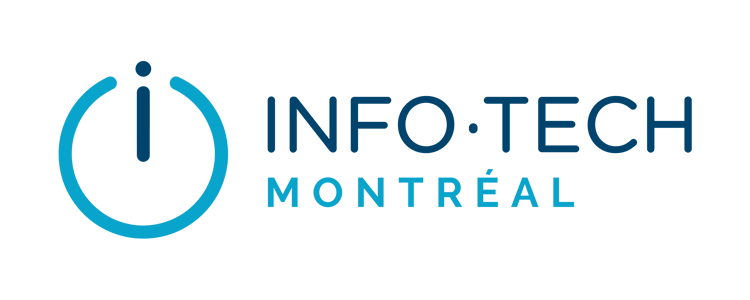How to Protect Your Private Data in the Digital Age
Data privacy has become an increasingly important issue in recent years, as more and more personal information is being collected and shared online. With the rise of social media, e-commerce, and other digital platforms, it has become easier than ever for companies and individuals to collect and store vast amounts of data about individuals.
Unfortunately, this has also made it easier for data breaches and other cyber threats to occur. As seasoned IT security professionals in Montreal, we’ve helped many organizations navigate cyber crises like hacks and data breaches over the past two decades. Drawing from this experience, we’ve identified 12 key IT practices to help individuals and businesses protect their online information. In this article, we will explore some of the best practices that everyone should be following to protect their personal information and maintain personal data privacy.
Quick links:
-
- Use Strong Passwords and Two-Factor Authentication
- Keep Your Software Up-to-Date
- Be Careful With Public Wi-Fi
- Don’t Overshare on Social Media
- Use Encryption for Sensitive Data
- Backup Your Data
- Use Anti-Virus Software and a Firewall
- Be Wary of Third-Party Apps
- Read Privacy Policies
- Use a Password Manager
- Be Aware of Phishing Scams
- Delete Old Data
1. Use strong passwords and two-factor authentication
One of the simplest yet most effective ways to protect your personal data is by using strong passwords and enabling two-factor authentication. A strong password should be at least 12 characters long and include a mix of upper and lower case letters, numbers, and symbols.
Avoid reusing passwords, particularly for critical accounts like banking, insurance, and social media. If you use the same few passwords across multiple accounts, a data breach on a single forgotten website could compromise many of your logins.
Hackers often test stolen credentials on popular platforms, potentially gaining access to your most important accounts. While long, unique passwords can be challenging to remember, some effective strategies include creating a mnemonic phrase, using a password manager, or developing a personal system for generating unique passwords for each site.
Two-factor authentication adds an extra layer of security by requiring a code or token in addition to a password, making it much more difficult for hackers to gain access to your accounts. Avoid SMS (text message) for two-factor authentication when more secure alternatives like authenticator apps are available. SMS relies on older, less secure protocols vulnerable to targeted attacks. While SMS two-factor authentication is better than no additional security, determined hackers can more easily intercept text messages compared to the more robust protection offered by modern authenticator apps.
2. Keep your software up-to-date
Another important step in protecting your data is keeping your software up-to-date. This includes your operating system, web browser, and any other software you use on a regular basis. Updates often contain security patches that address vulnerabilities and protect you from potential threats.
In addition, keeping software up-to-date is essential for businesses to ensure security, compatibility, functionality, compliance, and cost-effectiveness. By regularly updating their software, businesses can minimize the risk of cyber threats, improve performance, and stay competitive in today’s digital landscape.
IT consultation services can help businesses keep their software up-to-date. IT consultants can work with businesses to assess their current software and identify areas where updates are needed. They can help develop a strategy for keeping software up-to-date, including scheduling regular updates, testing software compatibility, and ensuring proper security measures are in place.
3. Be Careful With Public Wi-Fi
Public Wi-Fi networks are convenient, but they’re also risky. When you connect to a public Wi-Fi network, your data can be intercepted by hackers. Avoid using public Wi-Fi for sensitive activities like online banking or shopping. If you must use public Wi-Fi, use a virtual private network (VPN) to encrypt your data and protect your privacy. Consider seeking IT professional guidance for proper VPN configuration. Incorrect setup can undermine the security benefits, potentially leaving you vulnerable despite using a VPN.
4. Don’t Overshare on Social Media
Social media is a great way to stay connected with friends and family, but it’s important to be careful about what you share. Avoid sharing sensitive information like your home address, phone number, or financial information. Also, be cautious of who you add as a friend and what you post on their pages.
5. Use Encryption for Sensitive Data
Encryption is the process of converting data into a code to prevent unauthorized access. If you’re storing sensitive data like financial information or personal documents, make sure it’s encrypted. Many cloud storage providers offer encryption as an option, so be sure to check your settings.
6. Backup Your Data
Regularly backing up your data is important in case of a data breach or other cyber threat. Make sure you’re backing up your data to a secure location, and that you’re following best practices for data backups.
In addition, backup and recovery services are essential for any business to protect critical data, ensure business continuity, comply with regulations, minimize costs, and provide peace of mind. By investing in a reliable backup and recovery service, businesses can minimize the risk of data loss and ensure their operations continue in the event of an unexpected disruption.
7. Use Anti-Virus Software and a Firewall
Anti-virus software and a firewall are essential tools for protecting your computer from malware and other threats. Antivirus software scans your computer for viruses and other malicious software, while a firewall blocks unauthorized access to your computer. Make sure both are installed and updated regularly.
8. Be Wary of Third-Party Apps
Third-party apps are apps that are not created by the company that provides the underlying platform. For example, many Facebook games and quizzes are created by third-party developers. These apps often ask for permission to access your personal information, and it’s important to be careful about which apps you allow access to your data. Make sure you’re comfortable with the information the app is requesting before granting permission.
9. Read Privacy Policies
When signing up for a new service or downloading an app, be sure to read the privacy policy. This will give you an idea of what data is being collected, how it’s being used, and who it’s being shared with. If you’re not comfortable with the data privacy policy, don’t use the service.
10. Use a Password Manager
Password managers are a great way to keep your passwords secure and organized. Instead of using the same password for multiple accounts, a password manager generates and stores unique passwords for each account. This makes it much more difficult for hackers to gain access to your accounts.
11. Be Aware of Phishing Scams
Phishing scams are a common way for hackers to gain access to your personal data. These scams often come in the form of emails or text messages that appear to be from a legitimate source. Be cautious of clicking on links or downloading attachments from unknown sources.
12. Delete Old Data
Finally, it’s important to regularly delete old data that you no longer need. This includes old emails, documents, and other files. The less data you have stored, the less vulnerable you are to potential threats. You may also consider requesting deletion of your information collected by third-party companies and services you use. Some online data brokers also respond to these requests and can delete your data accordingly.
Safeguarding Against Cyber Threats
In conclusion, data privacy is an important issue that everyone should take seriously. By following these best practices, you can protect yourself and your sensitive information from potential threats. Remember to always be vigilant and stay up-to-date.
Don’t let cyber threats compromise the security and reputation of your business. Protect your data and systems by partnering with our cybersecurity consulting services. Our team of experts will help identify vulnerabilities in your network, implement effective security measures, ensure regulatory compliance, and provide ongoing support to keep your systems secure. Contact us today to learn more about our services and how Info-Tech Montreal can help safeguard your business from cyber threats.




